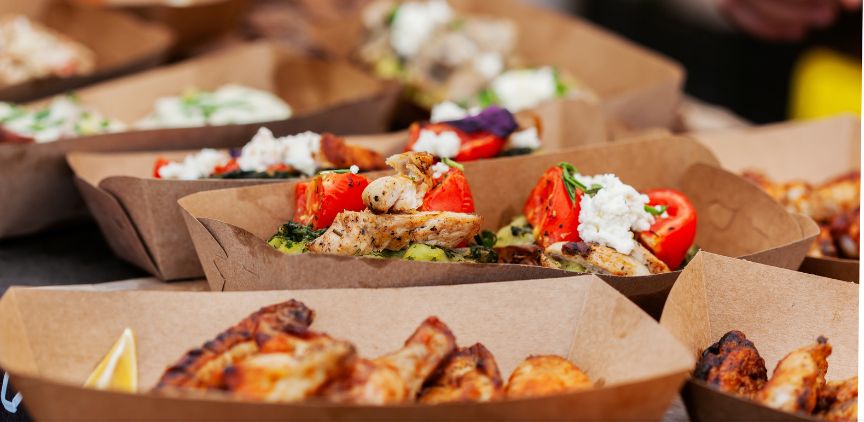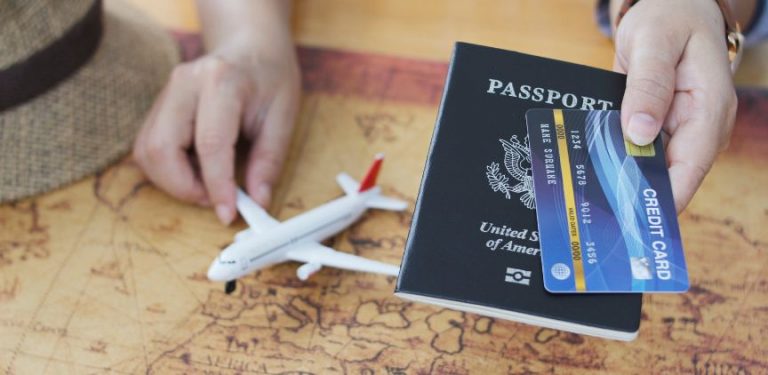Eating on the Go
When you travel, food is one of the best parts of the experience. However, some foods can upset your stomach, cause discomfort or even make you sick.
Foods to Avoid When Traveling
1. Uncooked Street Food
Street food can be fun to try, but be careful about uncooked items. Foods like raw vegetables, uncooked meats and unpeeled fruits can carry bacteria or viruses. Stick to cooked street food like grilled meats, fried snacks or boiled dishes. If you want fruits or veggies, make sure they’re washed or peeled.
2. Tap Water
In many countries, tap water is not safe for drinking. Even if locals drink it without problems, your body may not be used to it. Drinking tap water can lead to stomach problems, including diarrhea or worse. It’s best to stick to bottled water, especially in places where water cleanliness is uncertain. Don’t forget to avoid ice cubes in your drinks unless you know they’re made with clean water.
3. Unpasteurized Dairy Products
Cheese, milk and other dairy products that haven’t been pasteurized can carry harmful bacteria. Pasteurization kills germs that could make you sick. While some travelers enjoy trying fresh dairy products, it's best to choose pasteurized ones to avoid illnesses like food poisoning.
4. Salads and Raw Vegetables
While vegetables are normally healthy, raw vegetables can be risky when you’re traveling. If they’ve been washed in unclean water or handled improperly, they could make you sick. Salads are especially tricky because you can’t see if the veggies were washed correctly. To be safe, choose cooked vegetables instead.
5. Buffet Food
Buffet-style meals are popular in hotels and resorts, but they can sometimes be risky. Food that sits out for a long time can grow bacteria, especially if it's not kept at the right temperature. Always make sure hot foods are steaming and cold foods are chilled. If a dish looks like it’s been sitting out for hours, it’s better to skip it.
6. Undercooked Meats
It’s tempting to order your steak or burger rare, but undercooked meats can be dangerous when traveling. Meats that aren’t fully cooked may contain harmful bacteria or parasites. To avoid getting sick, order meats well-done or fully cooked. If you’re unsure about the safety of the meat, it’s best to choose something else from the menu.
7. Shellfish
Shellfish, like shrimp, oysters and clams, can be risky, especially in warm climates or places where food safety is a concern. Shellfish can spoil quickly and may contain toxins if not stored or cooked properly. If you’re unsure about the freshness of seafood, it’s safer to avoid it. Opt for fully cooked fish or other seafood instead.
8. Spicy and Rich Foods
While trying spicy or rich foods can be fun, they can also upset your stomach, especially if you’re not used to them. Spicy dishes may cause heartburn or indigestion, while rich, fatty foods can make you feel bloated. If you want to try these kinds of foods, start with small portions and see how your body reacts.
9. Sweets from Unknown Sources
Local desserts can be a treat, but be cautious with sweets made in unknown or questionable conditions. Street vendors may not always follow proper food safety rules, and the ingredients used may not be fresh. If you want to try desserts, it’s best to buy them from reputable bakeries or restaurants to avoid any unpleasant surprises.
10. Raw Eggs
Dishes that contain raw or undercooked eggs, such as some desserts, sauces or dressings, can carry a risk of salmonella. While this may not be a concern everywhere, it’s best to avoid foods like homemade mayonnaise or eggnog when traveling, unless you're sure they’re made with pasteurized eggs.
How to Stay Safe with Food While Traveling
- Eat at reputable places: Try to eat at well-reviewed restaurants or places where locals frequently eat. They’re more likely to follow proper food safety practices.
- Choose bottled drinks: When unsure about the safety of local water, always go for bottled drinks. This includes not just water, but also soda and juices.
- Watch what you eat in hot climates: Hot weather can make food spoil quickly. Be cautious with perishable items like dairy, meats and seafood in warmer regions.
- Carry snacks: Pack some trusted snacks from home for situations where you’re unsure about local food. Granola bars, nuts and dried fruit can keep you satisfied in between meals.
New Food Cautions
Traveling is an exciting opportunity to try new foods, but it’s important to be cautious about what you eat. Avoiding certain foods can help you stay healthy and enjoy your trip without any stomach troubles. Stick to cooked foods, drink bottled water and choose reputable restaurants to make your travels safer and more enjoyable!
Read on to learn about the worst drinks for COPD.

